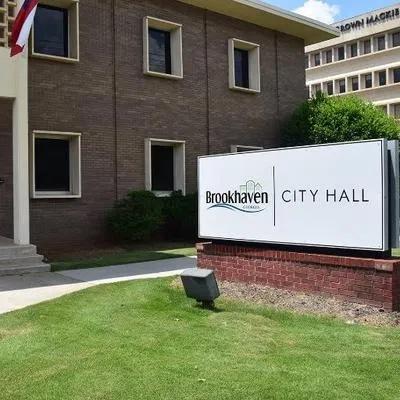
Section Branding
Header Content
Brookhaven officials condemn hate speech heard during public comment
Primary Content

Antisemitic comments and other forms of hate speech were made by nearly a dozen people during public comment at Tuesday’s Brookhaven City Council meeting.
The comments were in response to the city’s recently passed ordinance prohibiting the distribution of threatening flyers and projected images.
Brookhaven recently declared that overnight canvassing and the unauthorized projection of images are a crime after antisemitic flyers were distributed in several neighborhoods last month and transphobic flyers distributed in other metro neighborhoods earlier this year.
Using false names and addresses, public commenters who joined the meeting virtually over Zoom criticized the city and segued into spreading hate speech before being cut off.
One woman identified herself as Ursula Haverbeck — the same name as a German neo-Nazi activist from the 1930s. Another, when pressed by city staff, said his name was “Andy Semite.”
Hate speech and cursing is against Brookhaven City Council’s adopted code of conduct for public comment. Mayor John Ernst did little to interrupt the speakers, allowing some to talk past the 3-minute limit before city staff cut the microphone on 11 of the speakers.
Communications Director Burke Brennan repeatedly stated, “The decorum rules are in effect for the remaining time during public comment. Hate speech is not going to be allowed.”
At the end of the meeting each city council member condemned the comments.
“I have a personal commitment that I will not sit silently by and witness racism or antisemitism. So tonight, because of that, I am called upon to speak to what we witnessed and to condemn what the attacks we were all subjected to hearing on our council, our staff, our Jewish citizens, all of our peace-seeking citizens who had to endure that barrage of hate we witnessed tonight. I condemn it in the strongest terms,” said Councilmember Linley Jones.
Councilmember John Funny, who is Black, said, “Hate is not something that brings us together. Hate divides. And it’s simply unacceptable.”
Ernst said he’d been receiving similar feedback since the resolution went into place.
“I’ve wasted hours of my life listening to stuff like this … in a lot of ways I consider it a part of my duty as a public servant to take it on, so other people don’t have to,” Ernst said.
This story comes to GPB through a reporting partnership with Rough Draft Atlanta.

